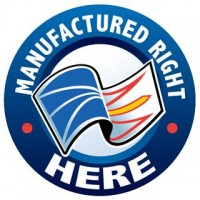
What do hand soap and bathroom tissue have in common?
Both can be found in the bathroom. They are both considered basic necessities and, as far as I can tell, every scrap of either one used in Newfoundland and Labrador is imported from someplace else.
Why is that?
I mention those two products simply as an example but the same holds true for much of what we consume in Newfoundland and Labrador. For centuries our people have been contented to import almost all of the basic necessities of life while exporting our valuable raw materials elsewhere.
Will this outdated and short sighted practice ever end?
I recently read an article out of Memorial University that was written nearly a decade ago. One passage noted, “Newfoundland continues to import many of the products its people consume while exporting primarily raw materials, a trade imbalance which has served to exacerbate the island's economic troubles.”
I couldn’t have put it better myself.
Before Confederation our biggest trade imbalance was with the United States, afterward it was (and is) with Canada. Only the players have changed, the game remains the same and it’s a once sided game that’s not in our favor.
The reality of 1949 is that many of those who voted for Confederation did so because they hoped for lower prices on imporated products. Very little consideration was given to producing many of those products, and related jobs, right here.
For as long as anyone alive today can recall Newfoundland and Labrador depended primarily on two major exports, fish and forest products. Today Newfoundland and Labrador’s economy isn’t as dependent on the fishery or the forest as it once was but the numbers show that little has changed with the overall picture of where we once were and where we are now.
In 1948 fish and fish products accounted for 40% of Newfoundland and Labrador’s exports, pulp and paper products 32% for a combined total of 72%.
These days (as of 2007 anyway) energy exports accounted for (wait for it) 72% of the Province’s exports.
We’ve traded fish and forests for oil and gas all the while continuing to import the vast majority of our manufactured goods.
Either way you slice it the Province still exports its resources instead of creating value added products for the local and export markets.
It seems we’d rather depend on shipping off our raw materials instead of creating a genuinely diversified economy through manufacturing. Even after centuries of economic turmoil we've yet to learn that decreasing our dependence on raw material exports and increasing manufacturing capability will help us become more economically stable by increasing our export values, decreasing our import costs and creating much needed employment. Something that might be quite helpful in an area accustomed to double digit unemployment.
The fishing and pulp & paper industry are now mere shadows of what they once were in Newfoundland and Labrador. Eventually the same will happen to the oil, gas and mining industries.
Unlike Fish and forests (both currently mismanaged) oil and minerals are non-renewable. Once they’re gone they’re gone. When that happens, as it surely must, gone as well is the last of the work in Newfoundland and Labrador. Gone as well are the exports and the Province’s revenues. Newfoundland and Labrador will cease to exist in any relevent way.
Why, after 500 years have we not learned from our past?
Why do we continue to depend on others to manufacture the goods we depend upon instead of supporting (with our purchasing power) encouraging and facilitating the development of local goods?
Until the public demands more locally produced products when they visit their favorite stores nothing will ever change.
Make no mistake, the Wallmart’s and Sobey’s of the world don’t give a damn about where they buy their products as long as their customers keep coming back. They also care who they sell them to and won’t hesitate to pull up stakes and move elsewhere when the resources are all finally depleted and the money run out.
The way I look at it, a simple bar of soap may not be as glamorous or as lucrative as high seas oil development but after a hard days work on the rigs I defy anyone to tell me it isn’t a valuable commodity.
 What do hand soap and bathroom tissue have in common?
Both can be found in the bathroom. They are both considered basic necessities and, as far as I can tell, every scrap of either one used in Newfoundland and Labrador is imported from someplace else.
What do hand soap and bathroom tissue have in common?
Both can be found in the bathroom. They are both considered basic necessities and, as far as I can tell, every scrap of either one used in Newfoundland and Labrador is imported from someplace else.